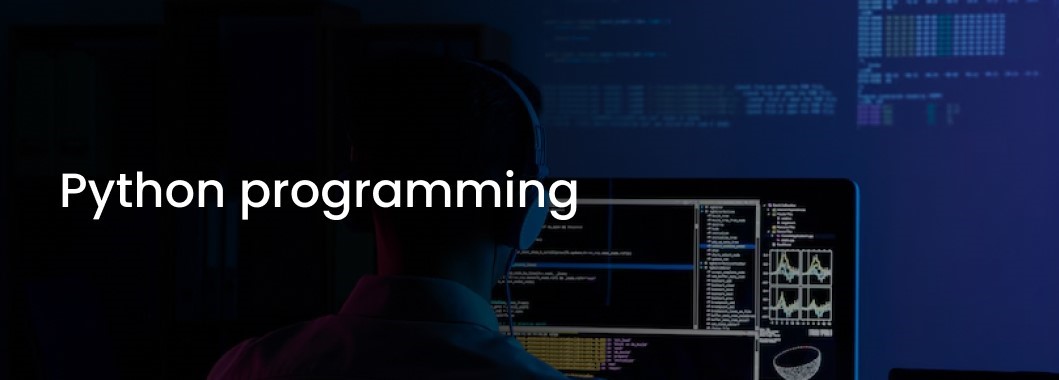BLOG

Python programming in tirupur
1. HTML (HyperText Markup Language)
:
Role : HTML is the
backbone of any web page. It defines the structure and content of a
web page using a series of elements or tags. These elements are used
to create headings, paragraphs, links, lists, and other content
types.
Structure : Documents
have a hierarchical structure with elements nested within one
another. At the top level, the html tag encapsulates everything.
Inside it, the head section contains metadata, such as the page
title and links to stylesheets, while the body contains the actual
content visible to users.
2. CSS (Cascading Style Sheets)
:
Role : CSS is responsible
for the visual presentation of web pages. It allows developers to
apply styles to HTML elements, such as colors, fonts, layouts, and
spacing.
Concepts : CSS uses
selectors to target HTML elements and applies styles through
properties. For example, you can change the color of text, adjust
margins and padding, or set up responsive designs that adapt to
different screen sizes.
3. JavaScript :
Role : JavaScript adds
interactivity and dynamic behavior to web pages. It allows
developers to create features like forms that validate user input,
dynamic content updates, and interactive elements.
Functionality :
JavaScript can manipulate the structure and content of a web page
(through the Document Object Model or DOM), respond to user actions
(like clicks and keystrokes), and communicate with the server to
fetch or send data asynchronously.
Back-End Development
1. Python :
Role : Python is a
versatile programming language used for server-side development. In
the context of web development, Python manages the logic, data
processing, and interactions with databases.
Frameworks : Python
offers several web frameworks that simplify back-end development.
For example, Django is a high-level framework that includes many
built-in features for rapid development and security. Flask is a
lightweight framework that provides flexibility and control over how
components are implemented.
2. Key Concepts :
Routing : Back-end
development involves setting up routes or endpoints that determine
how different URLs are handled. For instance, a route might define
what happens when a user visits a specific web page or submits a
form.
Databases : Back-end
applications often interact with databases to store and retrieve
data. Python frameworks usually provide tools to work with
databases, including Object-Relational Mappers (ORMs) that map
database tables to Python classes, making it easier to handle data.
APIs (Application Programming
Interfaces) : APIs allow different software components
to communicate. In web development, back-end APIs expose
functionality or data to the front end, which can request and
receive information in formats like JSON or XML.
Integration: Front-End and
Back-End
1. Data Exchange :
AJAX (Asynchronous JavaScript
and XML) : This technique enables the front end to
communicate with the back end without reloading the entire page. It
allows web applications to retrieve and send data asynchronously,
enhancing user experience by making interactions smoother and
faster.
2. APIs and Endpoints
:
Functionality : APIs
serve as intermediaries that allow the front end to request data
from or send data to the back end. For example, a front-end
application might use an API to submit a form or fetch user
information, and the back end processes this request and sends back
the appropriate response.
3. Server-Side Rendering
:
Concept : This involves
generating HTML on the server before sending it to the client.
Server-side rendering can improve performance and SEO (Search Engine
Optimization) by providing fully rendered pages to search engines
and users.
This overview covers the essential aspects of front-end and back-end
development, highlighting the roles and interactions of HTML, CSS,
JavaScript, and Python in building and maintaining web applications.
If you have specific questions or need more details about any part,
feel free to ask!

